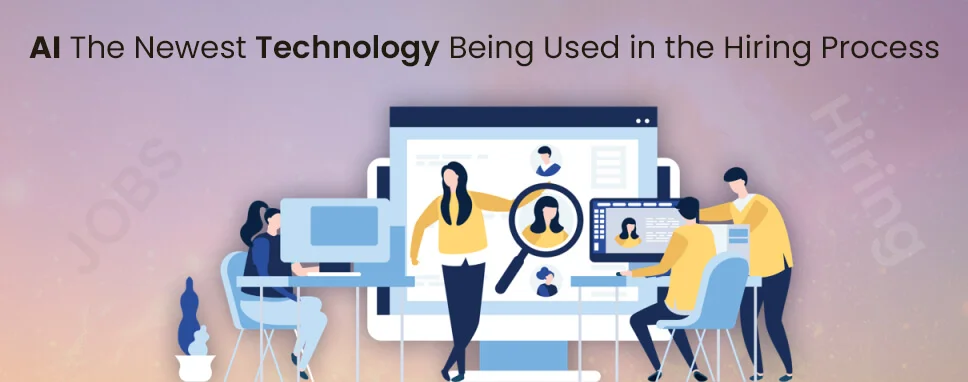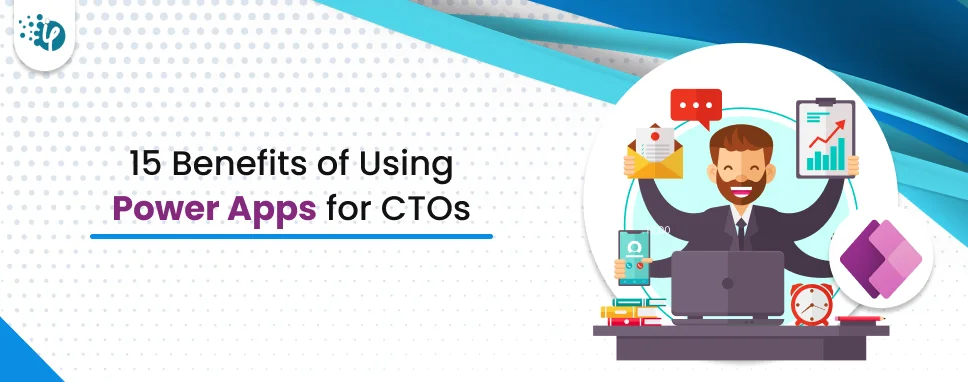4 Types of Healthcare Analytics with Examples & Success Stories
You already know how healthcare creates tons of clinical data every day. Patient visits… Labs… EMRs… doctor portals… scheduling systems… everything is generating numbers nonstop. But...
Listening is fun too.
Straighten your back and cherish with coffee - PLAY !

So, let's take a look at the ways AI is changing the hiring process and ways it can increase the effectiveness of building a talent pipeline
In recruiting, some of the more time-consuming aspects of the process can be weeding out the unqualified direct applicants. Once the list is initially narrowed down, screening applicants is the next step. This is one of the most time-consuming aspects of the recruiting process. Companies with a smaller internal recruitment team may struggle to review all applications and provide a fair, thorough application process and positive candidate experience. It all comes down to having, or not having, the bandwidth.
The benefit of utilizing AI in the recruiting process is that programs simply look through resumes and online profiles to identify the best prospects to bring in for an interview. Additionally, AI programs allow for personalized messages to be sent to a wide range of applicants by using mass email campaigns. Most human recruiters don’t have the time or capabilities to manually send out mass emails in the same amount that AI can do within the matter of seconds.
In terms of finding top candidates within an applicant pool, algorithms can go through a wide array of data and identify key elements that companies are looking for. Keyword search is used to compare the keywords found in an application and the occurrence of those words. Oftentimes candidates will alter their applications based on the job description to get noticed by AI better.
By using technology to narrow down applications, recruiting teams can then deal with a smaller group of candidates. This can help reduce time-to-fill and cost-per-hire, as well as help provide the best candidate experience. Additionally, keyword search optimization helps recruiting teams find better hires.
Although Human Resource teams do not intentionally hire on a biased notion, or at least we’d like to believe they don’t, it’s almost unavoidable within the human process. Humans are biased by nature, as we make decisions based on our emotions. This makes it almost impossible to remain subjective when reviewing applications and interviewing applicants.
By using AI technology, applications can be reviewed based on pure data, rather than biased opinions. The keyword search tools as well as skills and experience listed either match up with what the program is looking for, or they don’t. It does not take into account any biases, just pure data and analytics.
While it is almost impossible to eliminate human bias, AI can help correct these biases and make the hiring process more fair. This type of recruiting could be beneficial for an industry that has the reputation of a lower female representation, such as within the Sports Betting industry. While a human recruiter might be more inclined to hire a male, the machine will just look at experience, either qualifying the applicant or disqualifying them.
Artificial Intelligence technology can enhance the candidate experience at every stage of the hiring process. One example is the use of chatboxes. When candidates have questions about the position they can simply send them to a chatbot that can answer their question in a period of seconds. This can be easier than contacting a team member via email or phone and then waiting to hear back. Although the questions may not be as in-depth as a human response, they are getting instant gratification and answers to simple questions such as position location, where to find the application, etc. More thorough questions can be saved for the first round interview.
Additionally, it can help schedule interviews and update candidates on the status of their application. By using automated calendar technologies, candidates can schedule an interview that aligns with the recruiter’s calendar as well as their own.
Online application portals can help show application statuses, as it’s not uncommon for decisions to be delayed especially if there’s a large candidate pool. This wait time can leave applicants anxious about the next steps and wonder if a company is simply disorganized, which is a reputation no business wants to have. The application portals can show where their application is in the process and automatically send out information on next steps once the decision is sent from the recruiting team
This technology can also be a big help within the onboarding process. Background checks and document gathering can be collected via AI technology as well as online training programs. Giving new hires the ability to complete online training remotely is certainly beneficial amid COVID-19 hiring, and can show company flexibility within your employer brand.
The impact of AI in the recruiting process has been felt throughout the last decade. Major companies like Google, Facebook, Apple, AT&T, Capital One, and Allstate are using AI throughout their interview process. Moreover, in a report from Deloitte in 2018, 42% of survey respondents believed AI would be widely used at their company within a three to five year period. 72 percent of executives think AI will provide important business advantages in the upcoming years, while a LinkedIn study found that 76 percent of hiring managers think AI will be somewhat important in the future.
While many might see AI as a threat to the HR profession, its success is more likely to help rather than hurt these professions. Its benefits are to simply reduce the time spent on repetitive tasks and give people within recruiting positions the ability to spend time on more valuable work.
Overall, it is hard to picture that this is just a trend as the potential of AI to save time in the recruiting process, reduce cost, improve the employee experience has already been shown and its capabilities will only become greater throughout the century.

You already know how healthcare creates tons of clinical data every day. Patient visits… Labs… EMRs… doctor portals… scheduling systems… everything is generating numbers nonstop. But...

Implementing quick apps with the right strategies is essential for CTOs as it helps them deal with problems instantly and effectively. This is feasible by using a low-code technology, like Microsoft Power Apps. Check this comprehensive guide to learn more about Power Apps.

Automation is non-negotiable today. You cannot expect your team to do boring tasks such as data entries, email attachments, sending reminders, and more. And when it comes to automating...